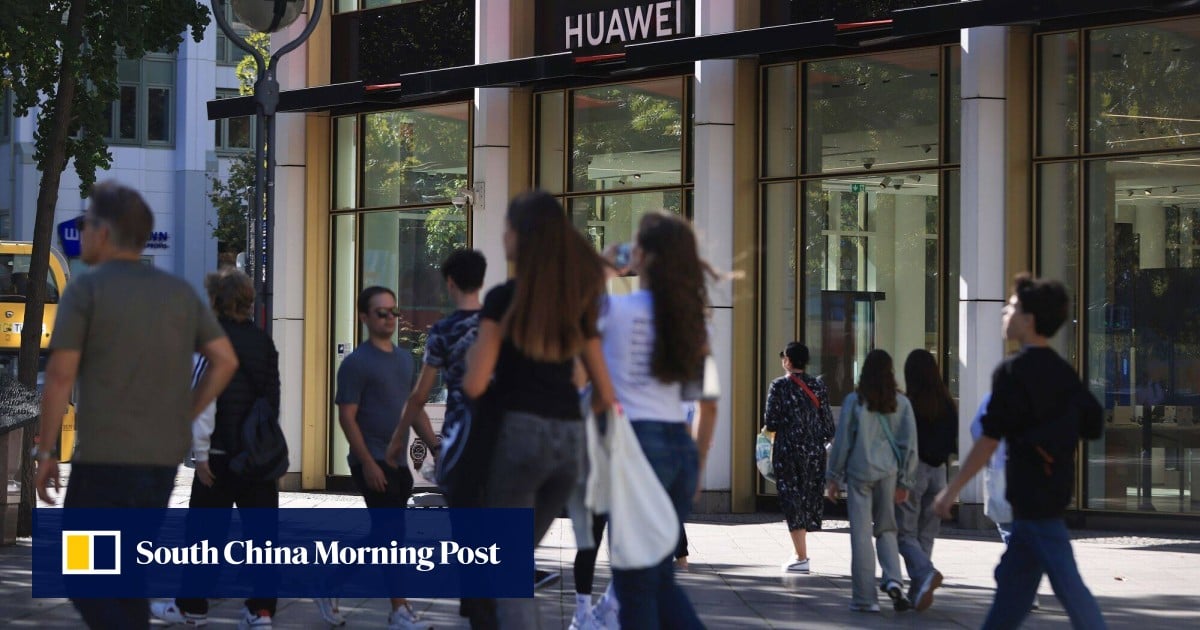Germany is nearing a decision to strip Chinese critical components from the nation’s 5G core network by 2026, with three of the four relevant ministries backing the measure, according to people familiar with the discussions.
The foreign and economy ministries support an interior ministry proposal to strip out equipment from Huawei Technologies Co. and ZTE Corp. for national security reasons, according to the people, who asked not to be identified because the discussions are not public. The digital ministry has not signed off on it due to industry opposition, they said.
A spokesperson for the digital ministry said that it rejects claims that it’s blocking a decision “on security issues relating to mobile network expansion.”
An interior ministry spokesperson said the review of German mobile networks is ongoing, and declined to comment further. Spokespeople for the foreign and economy ministries, Huawei and ZTE did not immediately reply to requests to comment.
The deal envisions a two-step phase-out for Chinese components, according to the people. German telecommunications providers would be required to remove all Huawei and ZTE critical components from their core networks by January 1, 2026, and then reduce structural dependency on Chinese components in their access and transport networks by 2029, they said.
The failure to reach a deal to date reflects tension in Germany’s ruling coalition, which is also bickering over several other issues, including next year’s federal budget and how to finance a takeover of the German power grid from Dutch grid operator Tennet Holding BV.
Chancellor Olaf Scholz’s Social Democratic Party controls the interior ministry, the Greens run the foreign and economy ministries, while the business-friendly Free Democratic Party is in charge of the digital ministry.
Deutsche Telekom AG, Germany’s largest mobile operator, has said in the past that a ban of Chinese components by 2026 is not realistic.
“For the SPD it is absolutely clear: Chinese components have no place in critical infrastructure,” Nils Schmid, foreign affairs spokesman for the SPD caucus in the lower house of parliament, said.
The digital ministry, run by Volker Wissing of the FDP, is obstructing the deal even as other members of Wissing’s party in parliament support the proposed ban, he said.
“This makes it all the more disconcerting that the digital ministry is being obstructive,” Schmid said.
Germany has been more hesitant to implement a ban on Chinese parts than some of its allies. The UK banned Huawei from next-generation 5G wireless networks in 2020 and limited its presence in fixed networks, citing supply-chain concerns after the US imposed sanctions on the company.
Germany opted to allow components from Huawei when companies, including Deutsche Telekom, built 5G networks. However, Berlin has since taken a tougher stance on China and sought to reduce its dependence on individual countries following Russia’s invasion of Ukraine.




